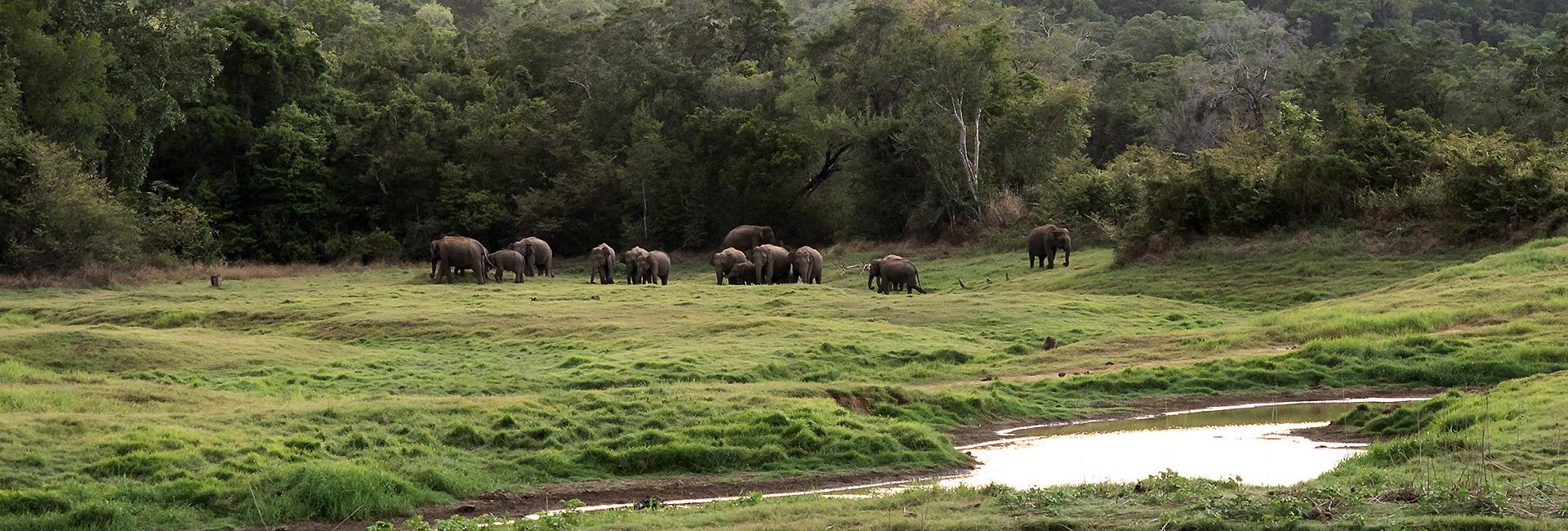As May was drawing to a close, The Great Elephant Project informed us that the elephants have decided to highlight the ironies of life, but not necessarily in the most hilarious way…
Whilst the night watchman at the project, Dingiri-Rala, who is better known as Māma, was doing his rounds, ensuring the safety of the elephants in Sri Lanka, and trying to avoid human-elephant conflict, it appears that some sneaky ellies raided his house for his rice stock. So, the elephants eleraided the house of the man who was trying to avoid just that!
Fortunately, no one was injured, except for poor Māma’s house! Take a look at the picture below and you will see the sheer strength that these incredible animals have, and why it is so important for the sustainability of both humans and elephants to coexist peacefully. Sadly, lots of money, time and effort will need to be exercised in order to restore Māma’s residence to its former glory.
The question is, why does this happen? Sri Lanka has recently experienced some weather anomalies; currently, the season should be turning dry, however unseasonal intermittent torrential downpours are disrupting the entire ecological cycle in the area. Rainfall is viewed as a blessing and a curse around the project site depending on where it falls. Unfortunately, this rain is flooding the forest grounds, pushing elephants and other wildlife onto higher ground where there is a lack of food. Therefore, decreased foliage is pushing the bulls (male elephants) into the villages where the locals keep their food stores, hence the occurrence of eleraids.
On this occasion, no human or animal was hurt, however, this will not always be the case so it is crucial the team know how to deal with this.
The area in which the project is situated is not particularly rich, surrounded by farmers and fishermen in remote communities. There are solutions to this human-elephant conflict but none of them come cheaply or easily.
Project coordinator Ravi Corea explains;
“The main reason elephants attack village homes is because the villagers store their harvested crops in the home. This is like waving an invitation to the elephants to raid their homes. The long term solution would be to provide each village with a strong elephant proof storage facility where villagers could safely store their produce. This is very expensive but effective. There are other options but none are 100 percent foolproof: Provide the villages with electric fences. Elephants will still occasionally break through electric fences similar to what happened with Māma’s incident. Again, electric fences are very costly to erect. The third option is to provide every village home with grafted orange and lime plants which will act as a food-deterrence to elephants. Elephants do not like to eat oranges and limes so when they get the smell of citrus they think there is nothing to eat in those home gardens. The citrus smell can overpower the smell of other crops because of the strong citrolene essence in them. Whatever measure is taken however, will bring no harm to the elephants whatsoever.”
Once Māma has completed filing all the official reports, work can begin to try and rebuild his home. Eleraids are a common occurrence throughout many villages, especially those with no elephant protection at all.
We will keep you updated on the progress that the team make to help put a stop to this issue, but for more information on the project itself, please view it on our project page.



















